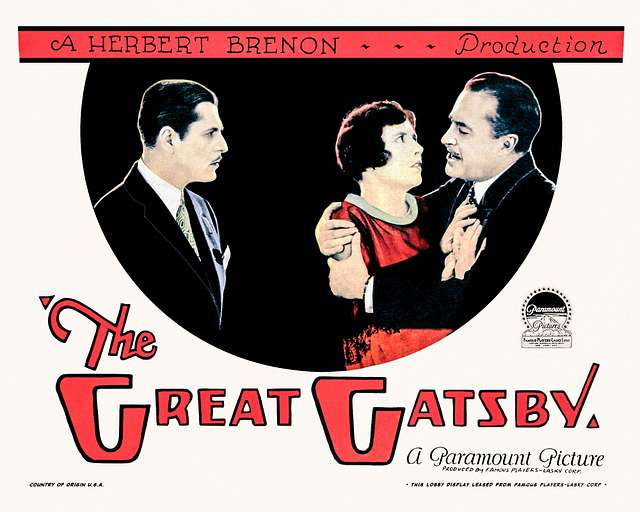American sociologist Peter Berger claimed, “Even a beautiful swan struggles beneath the surface.” This quote suggests that what appears beautiful may not always be so. Francis Scott Fitzgerald is known as the author who wrote The Great Gatsby. However, this glorious fame might not be the whole story. The person who knew him best was Zelda Fitzgerald, his lover and wife.
Francis Scott Fitzgerald and his wife Zelda were midnight celebrities. Fitzgerald’s first work, This Side of Paradise, received significant attention shortly after World War I. The post-war period was characterized by significant cultural shifts, including the rise of the “Lost Generation” – a term Gertrude Stein coined to describe the disillusioned young people who came of age during the war. This Side of Paradise captured the spirit of this generation and resonated with readers who were grappling with the aftermath of the war. This rising star became a literary giant, writing The Great Gatsby a few years later.
The Washington Post claimed, during that time, that many writers praised Fitzgerald, including literary giants like Stein and Ernest Hemingway. Fitzgerald’s arrogance soared to great heights. Even Zelda, who was also a writer, did not receive the respect she deserved from him. He often insulted her, saying, “I am a professional, and you are just an amateur.” This was unsurprising given Fitzgerald’s status as a celebrated author with the highest market value, while Zelda had not achieved comparable success.
However, there is a commonly asked question: Was Fitzgerald’s success solely self-earned? According to The Atlantic, when Fitzgerald wrote his first novel, This Side of Paradise, a majority of Zelda’s diaries contributed to it, yet he failed to acknowledge her contribution. In his third novel, he again borrowed extensively from her words, with one famous example being the line from The Great Gatsby where Daisy, the lover of the protagonist, Jay Gatsby, says, “I hope my daughter is a beautiful fool.” Daisy expresses a desire for her daughter to avoid the “pain of knowing and yet pretending not to know.” This reflected the societal preference at the time for women who were beautiful and silent with foolishness rather than intellectually inclined.
This parallels Zelda’s real-life statement about her daughter: “I hope she’s beautiful and silly, a beautiful little fool.” The irony lies in the fact that Fitzgerald used Zelda’s sentiments in his work without proper recognition, mirroring the disregard he showed towards her accomplishments.
According to Medium, the extent of Zelda’s influence on F. Scott Fitzgerald’s works went beyond mere inspiration, emphasizing the complexity inherent in their creative collaboration. Zelda’s unique perspective and experiences played a crucial role in shaping the narrative landscape of Fitzgerald’s famous novels. The interplay emerging from their creative partnership adds an intriguing dimension to literary history, reflecting the intricacies inherent in collaborative relationships.
Fitzgerald likely possessed characteristics of an unusual egotist. Despite being captivated by her lively charm and beauty, he had a selfish desire to view her as a submissive wife. Fitzgerald fervently wished for everything to be under his control. Even during the writing of her novel ‘Save Me the Waltz,’ he incessantly interfered and offered unsolicited criticism.
Save Me the Waltz delves into their marriage story, particularly featuring autobiographical elements. It narrates the tale of a beautiful Southern novelist and an artist coming together in their marriage. Following the Triumph Of The Now, Fitzgerald found this narrative uncomfortably close to their own lives and, as a result, requested significant portions to be excised. Zelda wanted to edit the novel for ‘aesthetic’ reasons only, but in the end, she had no choice but to comply with his demands. The aftermath was that Zelda’s novel not only struggled to find buyers but also the meager earnings it generated were used to pay off Fitzgerald’s debts. In response to these circumstances, Zelda claimed, “It’s better to be buried in an institution than to live like this.”
The personal lives of the Fitzgerald couple were not as glamorous or happy as their literary works might suggest. The Fitzgeralds experienced frequent divorces and reconciliations, facing conflicts in their marriage. Particularly, Zelda Fitzgerald struggled with mental health issues and alcohol addiction, leading to significant challenges.
In 1940, F. Scott Fitzgerald died of a heart attack, and eight years later, in 1948, Zelda Fitzgerald died in a fire. The tragic end of their marriage is remembered alongside their artistic legacy.













































































































































